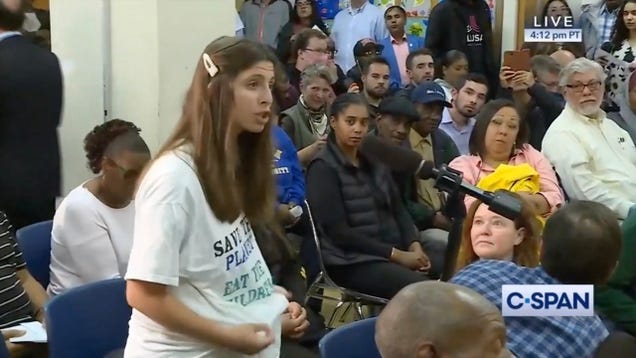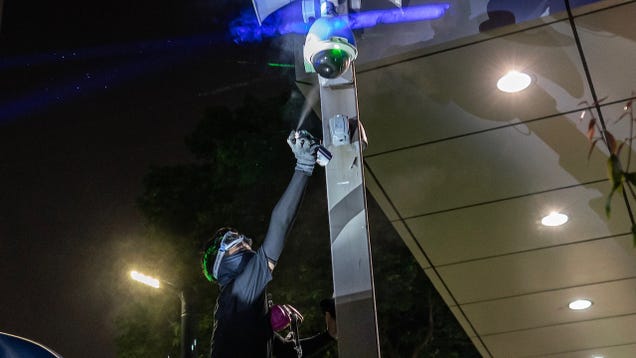U.S., U.K., and Australian officials have contacted Facebook to request that it provides authorities with a way to access encrypted messages sent by users over the social network, it was revealed today.
Facebook-owned WhatsApp already uses end-to-end encryption to ensure only senders and recipients can read messages, but Facebook intends to extend the same protocols to its Messenger and Instagram Direct chat platforms.

However, government officials have penned an open letter to Facebook CEO Mark Zuckerberg asking him not to go ahead with the plan – or if it does, to at least give authorities a way to read encrypted messages for reasons of law enforcement, and in particular to prevent child sexual exploitation.
A draft of the letter, obtained by
BuzzFeed News, is set to be released in tandem with an announcement on a new data-sharing agreement between law enforcement in the U.S. and the U.K. aimed at removing barriers to cross-border surveillance.
"We are writing to request that Facebook does not proceed with its plan to implement end-to-end encryption across its messaging services without ensuring that there is no reduction to user safety," the letter reads.
"Risks to public safety from Facebook’s proposals are exacerbated in the context of a single platform that would combine inaccessible messaging services with open profiles, providing unique routes for prospective offenders to identify and groom our children."
"Security enhancements to the virtual world should not make us more vulnerable in the physical world. Companies should not deliberately design their systems to preclude any form of access to content, even for preventing or investigating the most serious crimes."
The letter, dated October 4, is signed by U.S. Attorney General William P Barr, U.K. Home Secretary Priti Patel, acting U.S. Homeland Security Secretary Kevin McAleenan, and the Australian minister for Home Affairs Peter Dutton.
"We believe people have the right to have a private conversation online, wherever they are in the world," a Facebook spokesperson said in response to the letter. "Ahead of our plans to bring more security and privacy to our messaging apps, we are consulting closely with child safety experts, governments and technology companies and devoting new teams and sophisticated technology so we can use all the information available to us to help keep people safe."
"We strongly oppose government attempts to build backdoors because they would undermine the privacy and security of people everywhere."
Zuckerberg also defended his decision to encrypt Facebook's messaging services, despite concerns about its impact on child exploitation and other criminal activity.
Speaking on Thursday in a livestreamed version of the company's weekly internal Q&A session, the CEO said child exploitation risks weighed "most heavily" on him when he was making the decision and pledged steps to minimize harm.
Apple has long opposed government attempts to gain access to encrypted communications through the use of backdoors in iOS devices.
In 2016, a U.S. federal judge
ordered Apple to help the FBI hack into the iPhone owned by Syed Farook, one of the shooters in the
December 2015 attacks in San Bernardino.
The FBI asked Apple to create a version of iOS that would both disable passcode security features and allow passcodes to be entered electronically, allowing it to then brute force the passcode on the device.
Apple announced that it would oppose the order in an
open letter penned by
Tim Cook, who said the FBI's request would set a "dangerous precedent" with serious implications for the future of smartphone encryption. Apple said the software the FBI asked for could serve as a "master key" able to be used to get information from any iPhone or
iPad - including its most recent devices - while the FBI claimed it only wanted access to a single iPhone.
Apple's dispute with the FBI ended on March 28, 2016 after the government found an alternate way to access the data on the iPhone through the help of
Israeli firm Cellebrite and
withdrew the lawsuit.
Note: Due to the political nature of the discussion regarding this topic, the discussion thread is located in our Politics, Religion, Social Issues forum. All forum members and site visitors are welcome to read and follow the thread, but posting is limited to forum members with at least 100 posts.
This article, "
US, UK, and Australia Urge Zuckerberg Not to Extend Encrypted Messaging to Facebook and Instagram" first appeared on
MacRumors.com
Discuss this article in our forums

from MacRumors: Mac News and Rumors - All Stories https://ift.tt/30JB4jL



